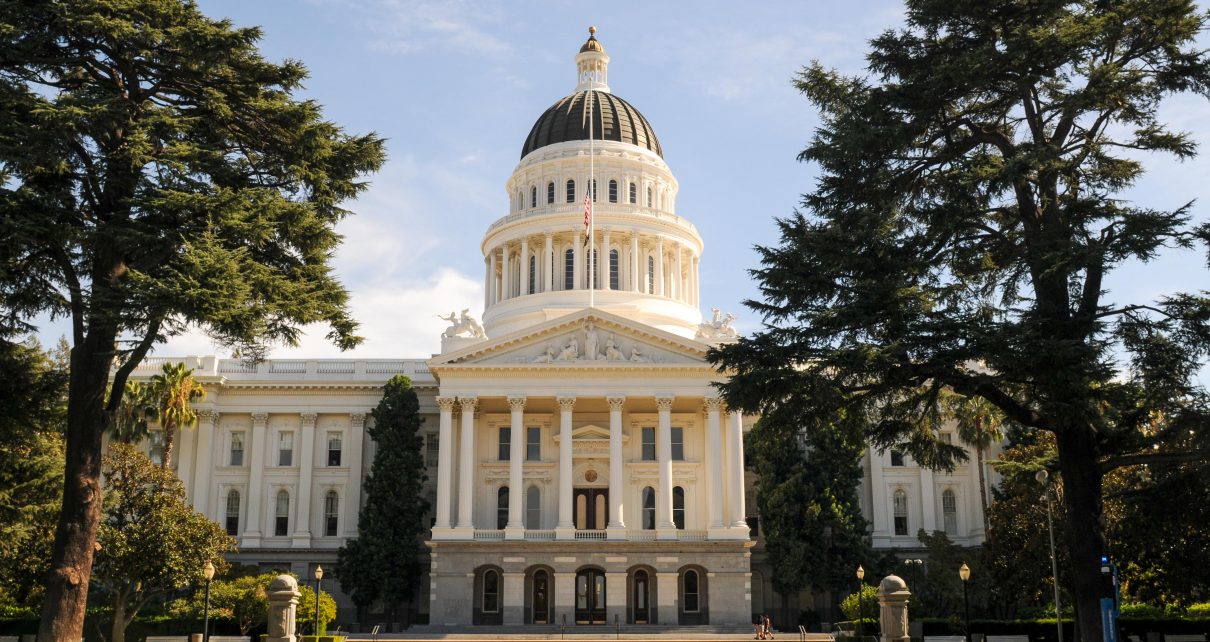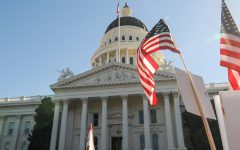
California State Capitol. (Photo: Kevin Sanders for California Globe)
California Taxpayers and Their Bill of Rights
Taxes are the most sensitive point of contact between citizens and their government
By Chris Micheli, January 30, 2023 7:30 am
Article 3 of Chapter 8 of Part 1 of Division 2 of the California Revenue and Taxation Code provides the Taxpayers’ Bill of Rights and Section 7080 names the act “The Harris-Katz California Taxpayers’ Bill of Rights.”
Section 7081 provides three legislative findings and declarations that taxes are the most sensitive point of contact between citizens and their government, and that it is the intent of the Legislature to place guarantees in California law to ensure that the rights, privacy, and property of California taxpayers are adequately protected during the process of the assessment and collection of taxes.
Section 7082 requires the State of Equalization (SBE) to administer Article 3 Section 7083 requires the SBE to establish the position of the Taxpayers’ Rights Advocate (TRA). The advocate or his or her designee is responsible for facilitating resolution of taxpayer complaints and problems, including any taxpayer complaints regarding unsatisfactory treatment of taxpayers by SBE employees, and staying actions where taxpayers have suffered or will suffer irreparable loss as the result of those actions.
Section 7084 requires the SBE to develop and implement a taxpayer education and information program directed at, but not limited to, specified taxpayers. In addition, the education and information program must include specified information.
Section 7085 requires the SBE to perform annually a systematic identification of areas of recurrent taxpayer noncompliance and report its findings in its annual report. The SBE also has to compile and analyze sample data from its audit process and conduct an annual hearing before the full SBE where industry representatives and individual taxpayers are allowed to present their proposals. And, the SBE must include in its report recommendations for improving taxpayer compliance and uniform administration.
Section 7086 requires the SBE to prepare and publish brief but comprehensive statements in simple and nontechnical language which explain procedures, remedies, and the rights and obligations of the SBE and taxpayers. The SBE must include the statements in the annual tax information bulletins which are mailed to taxpayers.
Section 7087 prohibits the total amount of revenue collected or assessed to be used to evaluate individual officers or employees or to impose or suggest revenue quotas or goals, other than quotas or goals with respect to accounts receivable.
Section 7088 requires the SBE to develop and implement a program which will evaluate an individual employee’s or officer’s performance with respect to his or her contact with taxpayers. The development and implementation of the program is coordinated with the TRA.
Section 7089 requires the SBE to develop a plan to reduce the time required to resolve petitions for redetermination and claims for refunds. The plan includes determination of standard time frames and special review of cases which take more time than the appropriate standard time frame.
Section 7090 requires SBE procedures relating to protest hearings before SBE hearing officers to meet specified requirements. Section 7091 provides that every taxpayer is entitled to be reimbursed for any reasonable fees and expenses related to a hearing before the SBE if specified conditions are met. The amount of reimbursed fees and expenses are limited.
Section 7092 specifies that an officer or employee of the SBE acting in connection with any law administered by the SBE cannot knowingly authorize, require, or conduct any investigation of, or surveillance over, any person for nontax administration related purposes.
Section 7093.5 provides that it is the intent of the Legislature that the SBE, its staff, and the Attorney General pursue settlements as authorized under this section with respect to civil tax matters in dispute that are the subject of protests, appeals, or refund claims, consistent with a reasonable evaluation of the costs and risks associated with litigation of these matters.
Section 7093.6 authorizes the SBE Director to compromise any final tax liability. Offers in compromise are to be considered only for liabilities that were generated from a business that has been discontinued or transferred, where the taxpayer making the offer no longer has a controlling interest or association with the transferred business or has a controlling interest or association with a similar type of business as the transferred or discontinued business. Extensive rules for offers in compromise are provided.
Section 7094 requires the California Department of Tax and Fee Administration (CDTFA) to release any levy or notice to withhold issued pursuant to this part on any property in the event that the expense of the sale process exceeds the liability for which the levy is made.
Section 7094.1 provides that, except in any case where the SBE finds collection of the tax to be in jeopardy, if any property has been levied upon, the property or the proceeds from the sale of the property is to be returned to the taxpayer if the SBE determines if specified conditions are met.
Section 7095 provides that exemptions from levy are to be adjusted for purposes of enforcing the collection of debts under this part to reflect changes in the California Consumer Price Index whenever the change is more than 5 percent higher than any previous adjustment.
Section 7096 allows a taxpayer to file a claim with the SBE for reimbursement of bank charges and any other reasonable third-party check charge fees incurred by the taxpayer as the direct result of an erroneous levy or notice to withhold, erroneous processing action, or erroneous collection action by the SBE.
Section 7097 provides that, at least 30 days prior to the filing or recording of liens, the CDTFA must mail to the taxpayer a preliminary notice. The notice must specify the statutory authority of the CDTFA for filing or recording the lien, indicate the earliest date on which the lien may be filed or recorded, and state the remedies available to the taxpayer to prevent the filing or recording of the lien. In the event tax liens are filed for the same liability in multiple counties, only one preliminary notice shall be sent.
Section 7098 prohibits the SBE from revoking or suspending a person’s permit unless the SBE has mailed a notice preliminary to revocation or suspension which indicates that the person’s permit will be revoked or suspended by a date certain pursuant to that section. The SBE must mail the notice preliminary to revocation or suspension to the taxpayer at least 60 days before the date certain.
Section 7099 provides that, if any officer or employee of the SBE recklessly disregards SBE-published procedures, a taxpayer aggrieved by that action or omission may bring an action for damages against the State of California in superior court. Upon a finding of liability of the part of the State, the state is liable to the plaintiff in a specified amount.
Section 7099.1 specifies that, with respect to tax advice, the protections of confidentiality that apply to a communication between a client and an attorney, also applies to a communication between a taxpayer and any federally authorized tax practitioner to the extent the communication would be considered a privileged communication if it were between a client and an attorney. A federally authorized tax practitioner has the legal obligation and duty to maintain confidentiality with respect to such communication.
- Insignia of Nonprofit Associations - February 19, 2026
- Endangered Species Regulation - February 19, 2026
- Renewal of Judgments - February 18, 2026





One thought on “California Taxpayers and Their Bill of Rights”